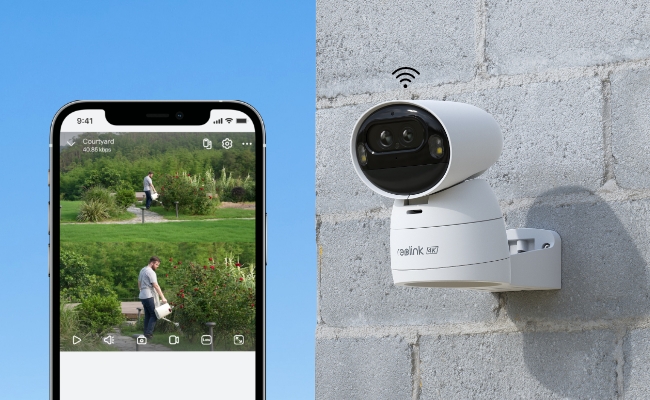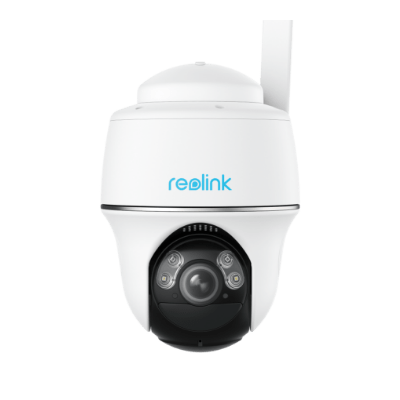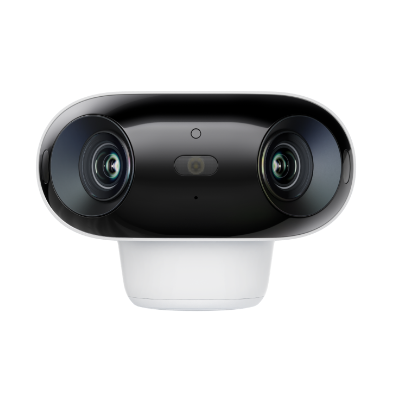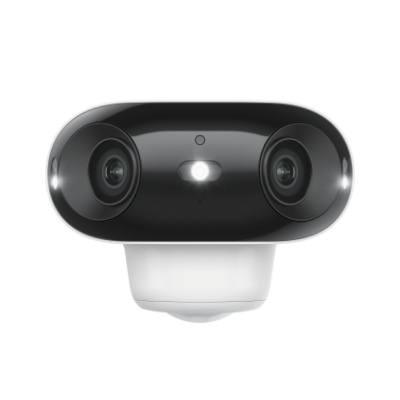How Do Wireless Cameras Work?

Wireless security cameras do not need a wire for power and networking. They have a rechargeable battery for power that can also be connected to a solar panel. For networking, it can use Wi-Fi or 4G LTE. People prefer installing wireless security cameras as they are easier to install and incredible.
In this article, we are going to discuss how wireless cameras work. We will share the pros and cons and explain the difference between them and wired security cameras. Moreover, we will share some cameras you can use for optimal security.
How Do Wireless Security Cameras Work?
Wireless security cameras have a built-in rechargeable battery. You can charge them using a power adapter, and they last for a day or two usually. However, people prefer to connect them to a small solar panel. It charges the battery within a few minutes, and then it can be used for a day continuously. That said, it does not require a wire for power.
A wireless security camera can use a Wi-Fi network for the transmission of data and offer real-time access. It can be connected to the home Wi-Fi network. You have to place this camera within the Wi-Fi range.
Some cameras can work on 4G LTE. They have a dedicated space for a SIM card. They use the data plan of the SIM card for networking. The best part is that they can be used at any place as they work as a standalone device.
The wireless cameras record the video and audio through built-in sensors. Then, they process everything and convert it into a digital format. Finally, the captured video is stored in the mounted SD card, cloud storage, or local storage.
Types of Wireless Security Camera
There are two main types of wireless security cameras. One works on a 4G cellular network, and the other requires Wi-Fi.
Wireless Security Camera with 4G Cellular
A 4G cellular wireless security camera works on the 4G network. It does not require Wi-Fi, so it is an ideal option for remote locations. However, it consumes the data plan of the SIM card. It stores the recorded video within its mounted SD card or cloud storage.
Reolink Go PT Ultra is a 4G LTE security camera. It requires a SIM card to work without Wi-Fi and wires. It contains a rechargeable battery, which can be charged by a small solar panel. Ten minutes of charging is enough for 24 hours of performance.
The camera records 4K crisp and clear videos that offer incredible details. It also has a 355⁰ pan and 140⁰ tilt to cover a wider area. It can automatically detect the motion of objects and start recording. You also get instant alerts on your devices.
4K 8MP Wire-Free 4G LTE PT Battery Camera
4K 8MP; Smart Detection; 355° Pan & 140° Tilt; Battery/Solar Powered; Color Night Vision; Smart Real-Time Alert.
Wireless Security Camera with Wi-Fi
A Wi-Fi security camera needs a Wi-Fi connection for data transmission. You have to place it within the Wi-Fi range. As long as the Wi-Fi is available, it works smoothly.
The new Reolink Argus 4 Pro is a wireless Wi-Fi camera. It works on two Wi-Fi bands (5 and 2.4 GHz) to ensure stable connection and excellent speed. It is also a battery-powered camera. Its battery can be recharged using an adapter, or you can connect it to a small solar panel.
It contains dual lenses, creating a 180-degree field of view. Most importantly, the camera can offers full color night vision without using spotlights, a dual warning system, time-lapse, two-way audio, and many incredible features.
4k 180° Wire-free Color Night Vision Camera
4K UHD 180° Blindspot-free View; Color Vision Day and Night; 30% More Battery Life; Dual-band Wi-Fi 6; Smart detection.
If you are seeking for a WiFi wireless security camera with traditional IR and spotlight color night vision, the Argus 4 is a good alternative.
4k 180° Blindspot-free Wi-Fi 6 Camera
4K UHD 180° Blindspot-free View; Dual-band Wi-Fi 6; Smart detection; Easy Installation Anywhere
Pros and Cons of Wireless Camera
Pros of Wireless Camera
-
Easy Installation: Wireless cameras can be installed without any hassle. You just need to mount them at a suitable place. No wires and needed.
-
Flexible Placement: These cameras can be placed anywhere as you don't need to connect them to a power outlet. They can also be charged through a solar panel, so you can place them even in a jungle.
-
Expandability: Expansion of wireless cameras is easier. You can install as many as you want without worrying about wiring.
-
Portability: You can carry wireless cameras anywhere. They can work as dashboard cameras, kids' room cameras, nanny cameras, door cameras, etc.
-
Integration with Smart Home Systems: Using Wi-Fi, you can connect wireless cameras to the smart home system and control them through your voice.
Cons of Wireless Camera
-
Signal Interference: Wireless cameras, the Wi-Fi ones, are susceptible to signal interference. It can adversely affect the performance.
-
Security Risks: These cameras can be hacked. Hackers can access Wi-Fi or camera recordings remotely. Thus, your data could be at risk.
-
Cost: The cost of wireless cameras is a little higher. If you are buying multiples, you might feel the difference.
-
Cannot record continuously: Wireless cameras cannot record continuously. They start recording when they sense any movement. Thus, it could miss some important moments.
Wired vs Wireless Camera: What's the Difference?
Wired cameras require a wire for power and networking. For instance, PoE cameras need an Ethernet cable that not only connects the camera to a network but also powers it.
Although it is difficult to install a wired camera because you need to lay wires in the area, it is more reliable than wireless cameras. It can work 24/7 and do continuous recording. There is a constant supply of power. However, it does not work in power outages.
On the other hand, wireless cameras are easy to install. They can also work as a standalone device, which is ideal for areas where laying wires is difficult or impossible. You can place them anywhere, and they can work in power outages.
But wireless cameras are not as reliable as the wired ones. Secondly, they cannot record continuously because of the battery drainage. And the worst thing is that you need to recharge them often if there is no solar panel attached.
FAQs
1. How do wireless security cameras get power?
Wireless security cameras have a built-in battery. It can be recharged whenever needed. You can charge it through an adapter or by connecting it to a small solar panel. A fully charged battery could last for a day, depending on the camera brand.
2. Do wireless cameras need Wi-Fi to work?
If you have a Wi-Fi wireless camera, it will need Wi-Fi to work. You can connect it to your home Wi-Fi network. Once it is connected, you can enjoy remote access, cloud data uploading, and all features. But if your camera has 4G LTE, it will not need Wi-Fi to work.
3. Do wireless cameras record all the time?
No. Usually, wireless cameras work on event-based recording so that the battery can last longer. When it detects any motion, it starts recording. It focuses on important events to save battery and storage space.
Conclusion
Wireless cameras are easier to install, and that's why they are getting more popular. People prefer to install them at their houses, offices, etc. They are connected to a Wi-Fi network, and they could work on 4G LTE. They have a built-in battery, which offers a decent backup. You can also install a small solar panel to charge the battery automatically. If you want wireless security cameras, you can consider the products we have shared.
Search
Be in the Know
Security insights & offers right into your inbox



